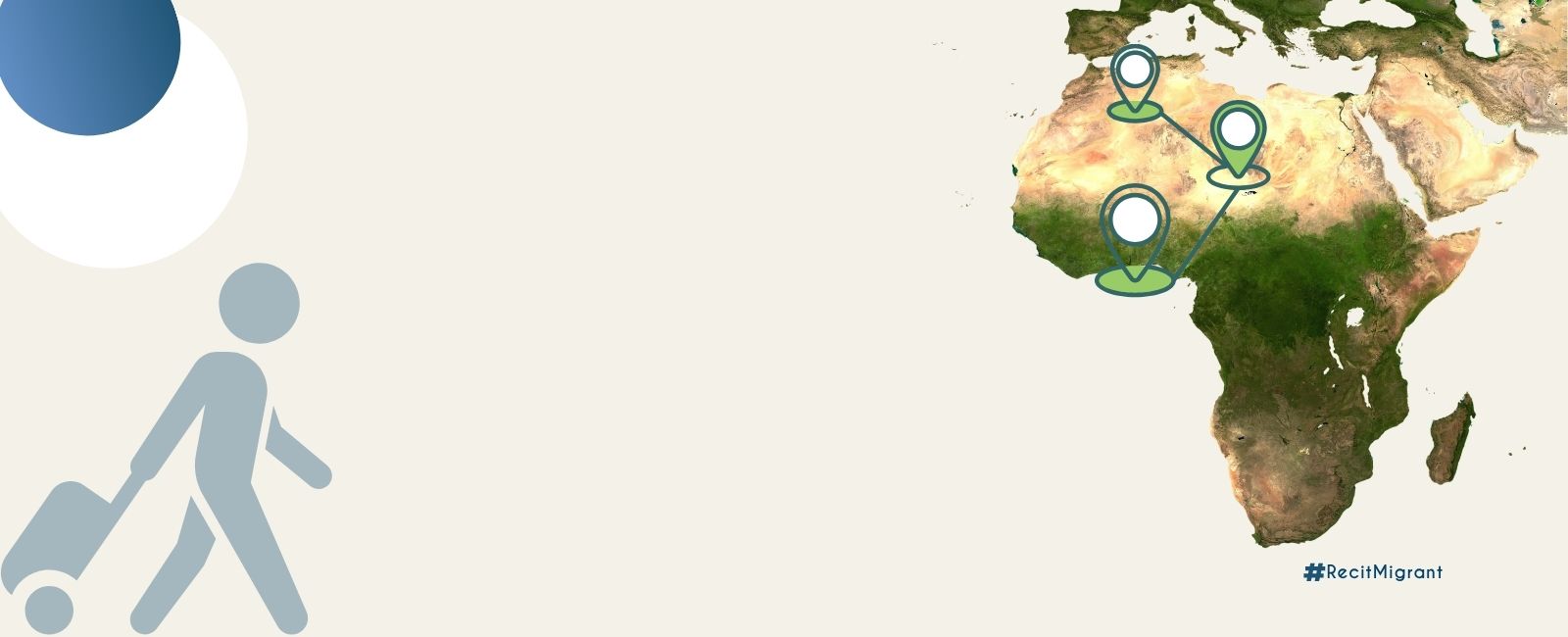

In this article, gender and development expert Baltazar Atangana analyses current trends in African migration policies, highlighting those that successfully combine humanism with institutional innovation.
Africa, a continent characterised by significant intra-regional mobility, now stands at a migratory crossroads where major economic, political and social issues are at stake – more so than ever before. The diversity of migration policies adopted by African States reflects a divergence of visions, ranging from restrictive approaches focused on border security to progressive strategies centred on integrating migrants as actors of development.
Rewriting the African migration framework: balancing fragmentation and harmonisation initiatives
Historically, migration management in Africa has followed national logics, often shaped by immediate security or economic concerns rather than a unified continental vision. Regional instruments, such as the African Union’s Protocol on the Free Movement of Persons, have seen limited implementation, largely due to poor coordination among States and internal political resistance. Yet, the adoption of a coherent, continent-wide migration policy could provide effective responses to today’s challenges, notably by facilitating labour mobility and maximising the economic contributions of diaspora communities.
An analysis of legislative frameworks reveals significant disparities: some countries, such as South Africa, have adopted strict migration regimes aimed at limiting inflows and restricting migrants’ rights, while others, like Morocco and Uganda, have pursued more inclusive and rights-based policies. These contrasting models reflect fundamentally different visions of migration: one viewing it as a challenge to be managed and controlled, the other as an opportunity to be leveraged for development.
Presentation of national migration policies
South Africa: Migration policy under pressure
South Africa continues to pursue a restrictive migration policy, with recent reforms aimed at tightening visa regulations and strengthening border controls. In 2024, the government introduced legislation limiting migrants’ access to public services, particularly in health and education. At the same time, rising xenophobia remains a major concern. A recent survey found that over 60% of South Africans view migrants as an economic threat, further fuelling social tensions. In response, both local and international organisations have stepped up efforts to promote migrant integration and combat discrimination.
Morocco: Regularisation and integration strategy
Since 2013, Morocco has pursued a migrant regularisation policy, with more than 50 000 migrants regularised to date. In 2024, the country reinforced its legal framework by improving migrants’ access to social services and expanding professional integration programmes. Morocco also plays a key role in managing migratory flows to Europe. In 2024 alone, Moroccan authorities prevented over 45,000 attempted crossings and dismantled 177 migrant smuggling networks. While this approach has been praised for its effectiveness, it has also raised human rights concerns, particularly regarding the treatment of migrants in transit.
Rwanda: Model of proactive integration
Rwanda continues to position itself as a key player in regional migration management. In 2024, it signed an agreement with the United Kingdom to receive asylum seekers, further reinforcing its role in migration diplomacy. The country has also developed training and professional integration programmes for refugees, granting them access to employment opportunities in sectors of agriculture and services. This approach aims to reduce refugees’ reliance on humanitarian aid and promote their economic empowerment.
Uganda: Exceptional reception policy
Uganda remains one of the most welcoming countries for refugees, having hosted over 1,5 million by 2025. The country recently strengthened its Refugee Response Plan (2022–2025), placing strong emphasis on economic and social inclusion. Unlike in many other countries, where refugees are confined to camps, Uganda allows them to own land and work, thereby fostering their integration into the local economy. While this progressive policy has been widely praised, it also faces challenges, particularly regarding pressure on natural resources and tensions with host communities.
Senegal: A Diaspora-focused approach to circular migration
Senegal continues to promote circular migration and harness diaspora investments. In 2024, the government launched Operation Djoko, an initiative aimed at preventing irregular departures and enhancing economic opportunities for young people. The country has also signed bilateral agreements with Spain to facilitate the temporary migration of Senegalese workers. These efforts seek to better structure migration and reduce the risks associated with clandestine crossings to Europe.
Persistent challenges of human-centred migration policy
While these progressive policies undoubtedly represent important advances, they are hindered by significant structural constraints. Financing the reception and integration of migrants remains a major challenge, particularly for low-income countries. Reliance on international donors not only weakens existing systems but also exposes them to global economic fluctuations.
Moreover, rising social tensions in both Southern and Northern Africa highlight local populations’ resistance to migrant integration. Xenophobia and negative perceptions of foreigners complicate the implementation of inclusive policies and call for sustained efforts to foster social acceptance of migration.
Finally, the lack of genuine intra-African cooperation hampers the harmonisation of migration policies. Despite initiatives by the African Union (AU) and Regional Economic Communities (RECs), strategies remain fragmented, making effective and coordinated management of migratory flows across the continent difficult.
Towards more inclusive governance of African migration
An analysis of African migration policies reveals contrasting dynamics, where innovative initiatives coexist with restrictive practices. The challenge facing the continent today is to rethink migration, not as a problem to be solved, but as an opportunity to be structured through inclusive models that place migrants’ needs at the heart of public policy.
According to the 2024 Africa Migration Report, published by the African Union and the International Organisation for Migration, nearly 80% of migration in Africa is intra-continental – challenging the widespread perception that most African migration is directed toward Europe. The report also notes that forced displacement due to conflict and climate-related disasters affected a record 16.4 million people in 2022, with internal migration rising significantly as a result of prolonged droughts and flooding.
Regional integration emerges as a key solution for effectively managing migratory flows. The Global Compact for Migration, whose implementation was reviewed in Africa in 2024, has led to notable progress in 40 African countries, particularly in safeguarding migrants’ rights and establishing legal migration pathways. However, disparities remain: while some states, such as Rwanda and Uganda, are advancing inclusive reception and integration policies, others, like South Africa, continue to tighten restrictions and reinforce border controls.
Another significant challenge is the impact of climate change on migration patterns. In 2024, the African Commission on Human and Peoples’ Rights reported a 30% increase in climate-induced migration over the previous year, with the highest rates recorded in the Sahel and Horn of Africa regions. This type of forced displacement calls for migration policies to be adapted, ensuring sustainable solutions such as access to land and resources for displaced populations.
Economic and digital inclusion is also becoming a critical factor in successful migrant integration. Several African countries, including Morocco and Senegal, have launched initiatives to support migrant entrepreneurship through training programmes and improved access to finance. In addition, the growing use of digital platforms is helping to facilitate migrants’ integration into local communities.
The future of African migration policies will therefore depend on their ability to align human rights, economic development, regional integration, climate change adaptation, economic and digital inclusion, as well as women’s empowerment. A coordinated and innovative approach could transform migration into a driver of growth and cooperation.

Baltazar ATANGANA🇨🇲
Baltazar ATANGANA is a gender and development expert, with a specific geographical focus on Central and West Africa. He is the author of several articles and books, the most recent being Lutte de Femmes (2025). He has contributed to numerous studies and analyses, including « Ce qu’il faut questionner afin de mieux financer les organisations […]

